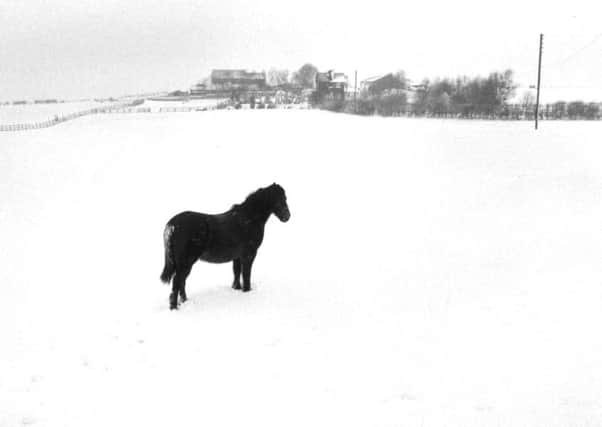Cold spell hits farmers hard: The week that was April 25 to May 2, 1986


Many believed that the prolonged low temperatures, coming after the wet, cool summer of the previous year, would prove to be the last straw for some farmers and drive them to bankruptcy.
Robin Cradock, Northern spokesman for the National Farmers’ Union, said: “Last summer’s weather meant that in some areas hardly any winter silage was made.
“The winter feed problem is now serious.”
Advertisement
Hide AdAdvertisement
Hide AdKnaresborough was gearing up to ask the Boundary Commission to consider allowing the town to form its own district council in order to escape the ‘burden’ of Harrogate’s £31m conference centre.
The town’s Conservative mayor Tony Allott said a district council similar in size to Teesdale with 24,600 inhabitants could be created, carved out of the current Harrogate District council representing 142,000.
Coun Allott said: “There is a great hole in people’s pockets, out of which money is being drained to provide services to Harrogate.”
However, although many agreed that Knaresborough ratepayers were getting a raw deal and something should be done, the annual town council meeting rejected a move to spend £5,000 of its reserves on consultants to investigate the feasibility of splitting from the neighbouring town.
Advertisement
Hide AdAdvertisement
Hide Ad“What we have to do is change the council, not the district,” said one local politician.
A wave of radioactivity that had caused untold numbers of casualties in the Soviet Union was now sweeping across parts of Sweden, Finland and Norway. The leak from a damaged reactor at the Chernobyl atomic power plant in the Ukraine had caused many deaths and evacuations and fall-out had already travelled more than 1,000 miles.
Official Soviet news agency Tass said: “Measures have been taken to eliminate the consequences of the accident. Aid has been given to those affected.” No details were given of when accident had happened.
According to nuclear industry watchdog the National Radiological Protection Board, Britain was not at risk from the radiation fall-out that had reached Scandinavia.
Advertisement
Hide AdAdvertisement
Hide AdBelgium was seeking the extradition of up to 30 football fans from Britain so that they could face manslaughter charges in the wake of the 1985 Heysel Stadium disaster in Brussels.
A terrace stampede led to the deaths of 38 mostly Italian fans at the Liverpool-Juventus European Cup final. Home Secretary Douglas Hurd now promised the Belgian authorities Britain’s full co-operation.
A simple statement from Buckingham Palace this week announced that the Duchess of Windsor, who had died in Paris at the age of 89, was to be buried in the Royal Family’s private burial ground at Windsor Castle – alongside the husband who had given up the throne for her 50 years previously.
And Dan Archer, patriarch of farming’s most famous farming family for 35 years, also died this week. Played by actor Frank Middlemass, listeners to BBC Radio’s The Archers heard Dan’s collapse while he was tending to a sick sheep. His grand-daughter Elizabeth tried vainly to revive him.